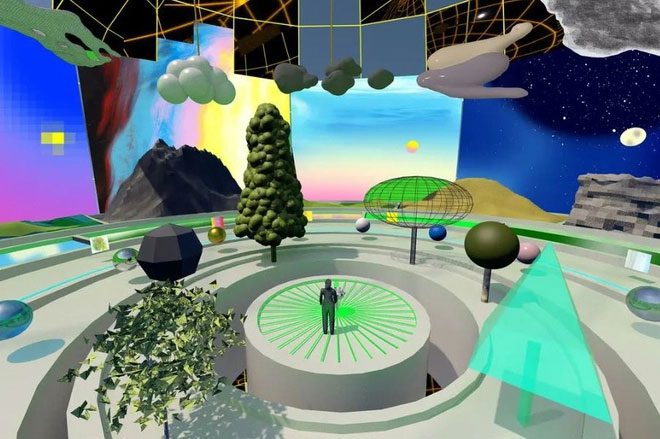What if we were to experience a world that is merely a detailed simulated reality? This simulation hypothesis is not a new idea and has appeared in many films. Recently, a physicist from the University of Portsmouth in the UK published a study in the journal AIP Advances with arguments supporting this hypothesis.
“All of our senses are simply electrical signals encoded by our brains. This is essentially a biological computer“, said physicist Melvin Vopson.
Melvin Vopson’s work is part of a branch of science known as information physics, which posits that everything in the universe is fundamentally composed of bits of information.

Perhaps “the universe actually operates like a gigantic computer.” (Illustration photo: Jon Han).
According to his Second Law of Information Dynamics, Vopson states that the informational content associated with any system, event, or process in the universe is minimized.
This physicist first noticed this behavior while studying the gene mutations of the virus that caused the COVID-19 pandemic. He observed that these mutations were not random and consistently led to a decrease in entropy—a physical quantity that describes the level of disorder in a system. This contradicts the second law of thermodynamics, which states that entropy can only increase or remain constant.
“The Second Law of Information Dynamics requires all systems, including biological life, to evolve in such a way that the information entropy and its informational content decrease to the optimal value of equilibrium state,” the physicist stated. He believes: “It is compressed just like how a computer operates in computer programs.”
Vopson believes that his discoveries may have implications for scientific laws in biology, physics, and astronomy. He asserts that perhaps “the universe actually operates like a gigantic computer.”
His previous research indicated that information is a fundamental component of the universe, possessing physical mass and should be regarded as the fifth state of matter.
His documentation also suggests that the second law of information physics supports this principle, potentially validating the idea of information as a physical entity, equivalent to mass and energy, and even positing that information could be dark matter in the universe.
“95% of the matter in our universe is untraceable and unobservable. It is a code. Perhaps that is the code that drives this simulation,” the physicist noted.
Vopson is attempting to detect and measure information in a fundamental molecule using collisions of matter and antimatter to seek answers for his hypotheses.


















































